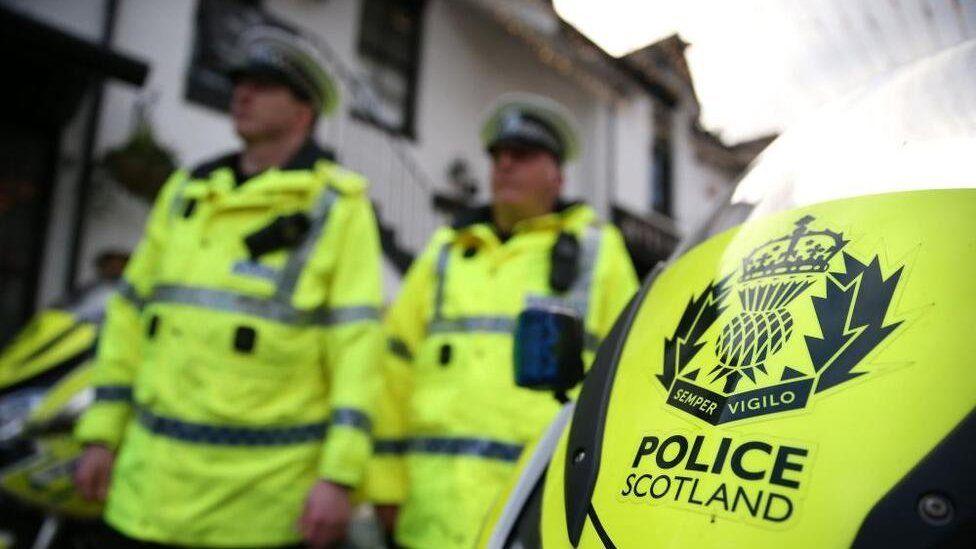More than 7,000 hate crime reports in first week of new law

- Published
Scottish police received more than 7,000 online reports of hate crimes in the first week after a controversial new law came into effect.
The force said this was a "substantial increase" - but that the impact on frontline policing had been minimal.
Police Scotland said the "vast majority" of the reports were anonymous and that no action was taken after they were assessed against the new legislation.
A total of 240 hate crimes and 30 non-crime hate incidents were recorded during the seven-day period.
Ministers 'caught by surprise' over hate crime row
- Published8 April 2024
How is Scotland's new hate crime law going?
- Published5 April 2024
Scotland's new hate crime law comes into force
- Published1 April 2024
Justice Secretary Angela Constance said the number of recorded hate crimes "demonstrates that this legislation is required and needed to protect marginalised and vulnerable communities most at risk of racial hatred and prejudice".
She said the situation had been "managed well" by Police Scotland.
"Historically, we know that hate crime in Scotland has been under reported.
"I think it's fair to say that there have been many vexatious reports that police have had to deal with and that is of course regrettable."
She added that people should "resist" from wasting police time.

Angela Constance met with members of Age Scotland's Scottish Ethnic Minority Older People Forum on Wednesday to discuss the impact of hate crime on ethnic minority communities and older people
The Hate Crime and Public Order (Scotland) Act 2021 came into force on 1 April.
This creates a new crime of stirring up hatred relating to age, disability, religion, sexual orientation, transgender identity or being intersex.
A person commits an offence if they communicate material, or behave in a manner, "that a reasonable person would consider to be threatening or abusive," with the intention of stirring up hatred based on the protected characteristics.
Stirring up hatred based on race, colour, nationality or ethnicity was already illegal in Great Britain under the Public Order Act 1986 but, in an attempt to streamline the criminal law in Scotland, that too is now part of the Hate Crime Act.
Critics claimed the legislation could harm free speech and senior police officers warned it could spark a flood of complaints about online posts.
But the Scottish government insisted that the law provided protection from hate and prejudice without stifling individual expression.
The figures released by Police Scotland cover the period from 1 to 7 April.
A spokesperson for the force said it showed a "substantial increase in the number of online hate reports being received".
“This significant demand continues to be managed within our contact centres and so far the impact on frontline policing - our ability to answer calls and respond to those who need our help in communities across Scotland - has been minimal.
“All complaints received are reviewed by officers, supported by dedicated hate crime advisers, and dealt with appropriately, whether that is being progressed for further assessment, or closed as they do not meet the criteria under the legislation.”
Race was the most common aggravating factor. It was cited in 120 of the recorded hate crimes, followed by sexual orientation in 42 cases and disability in 38 cases.
More than one "aggravator" can be applied to a hate crime, with Police Scotland reporting 250 in the first week of April for the 240 recorded crimes.
The Scottish Conservatives' justice spokesperson Sharon Dowey said the figures highlighted the strain the new law was already having on Scotland's "overstretched" police force.
She said: “It beggars belief that the SNP have introduced this when one in five officers still haven’t received the paltry two-hour training that’s supposed to equip them to enforce the new law."
Police Scotland's weekly report, external showed 80.49% of police officers had completed hate crime training.
